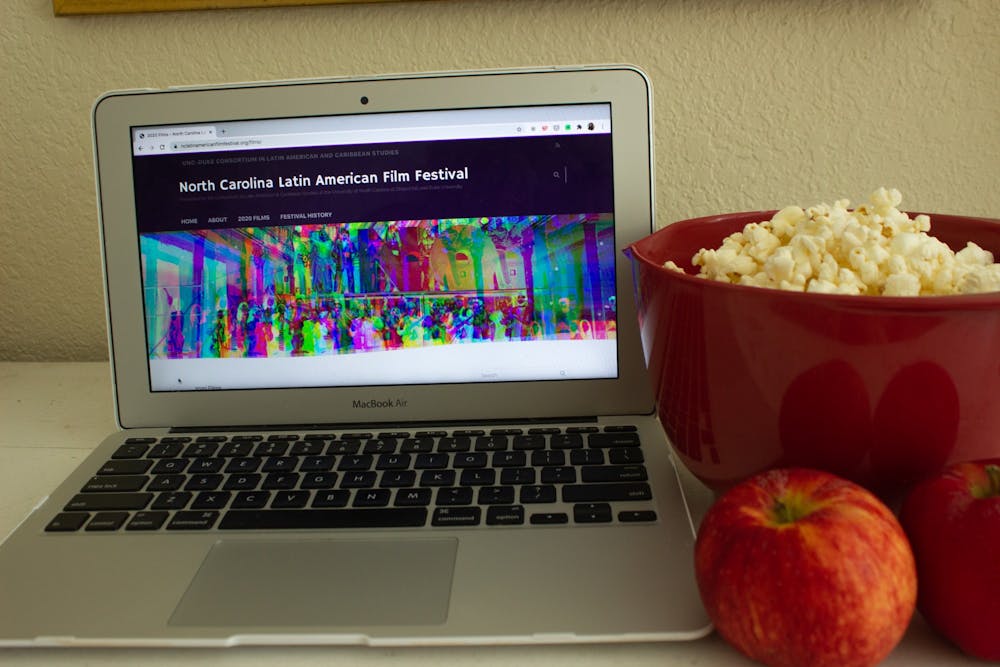For 35 years, the North Carolina Latin American Film Festival has brought representation to the screen for Latin American writers, actors, directors and more. The venue is online this year, but the festival still plans to tell the stories of the Latin American community over the next 10 days.
Events start Oct. 9 and run through Oct. 18. The event is free, but viewers must register online ahead of time. The film festival will be showing films such as “La Historia Oficial,” “When the Mountains Tremble” and “NO,” as well as presenting a series of conversations and talks from renowned speakers.
Directed by Duke University professor Miguel Rojas-Sotelo and produced by the Consortium in Latin American and Caribbean Studies at UNC and Duke, the event has served as a way for both communities to come together.
“It's basically the result of this collective effort that we do every year on both sides of the aisle,” Rojas-Sotelo said. “It’s your blue and our blue. Our blue is our own skies.”
Rojas-Sotelo sees the virtual presentation as an opportunity to allow people from all over the world to participate in the festival. He said speakers will also lead discussions about the films and the Latin American experience in film.
“We can offer an experience of Latin America like no other to everybody in the U.S. and beyond,” Rojas-Sotelo said. “Those are the opportunities we're tapping on. We offered a course – Latin American Film in the Era of Neoliberalism, 35 years of Latin American film – and have people from all over taking it.”
UNC professor and co-director of the consortium, Lou Pérez, said the NCLAFF echoes the purpose of the consortium, which is to highlight Latin American voices in the community.
“The principal virtue of the film festival is to provide insight into different Latin American countries from within,” Pérez said. “These are the ways for Latin American filmmakers, actors and writers to provide us with the representation of their reality.”
Founder Sharon Sullivan Mújica said she created the NCLAFF in the hopes of increasing communication and representation for the Latin American community in Chapel Hill.




